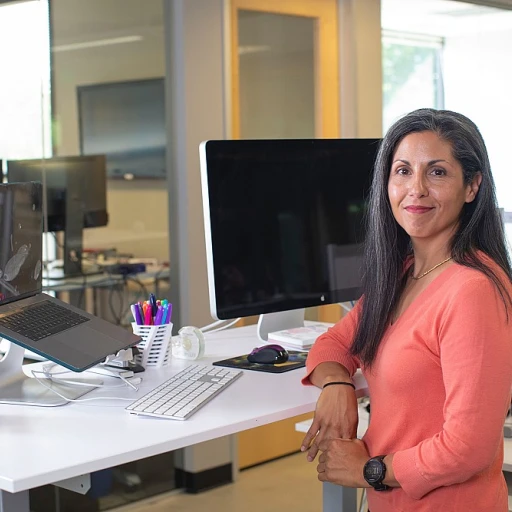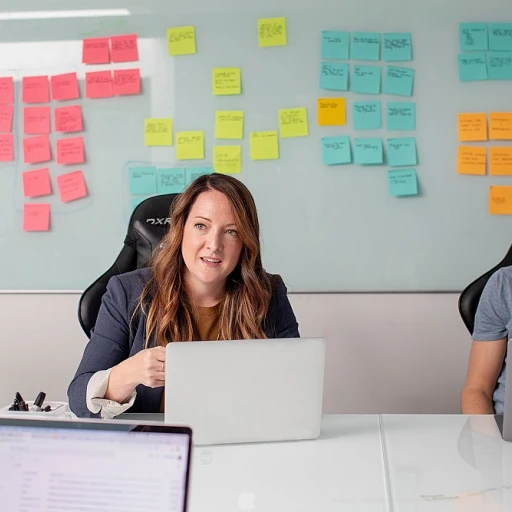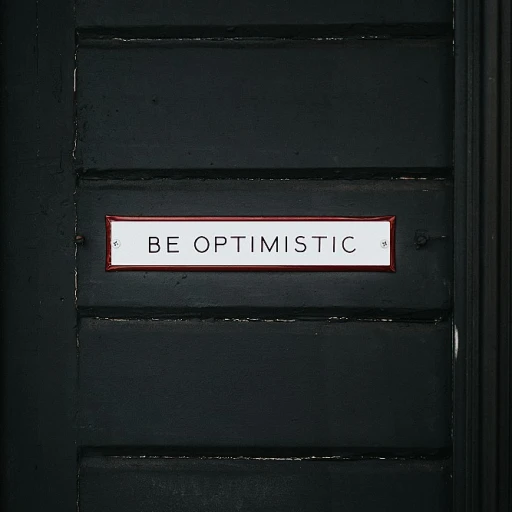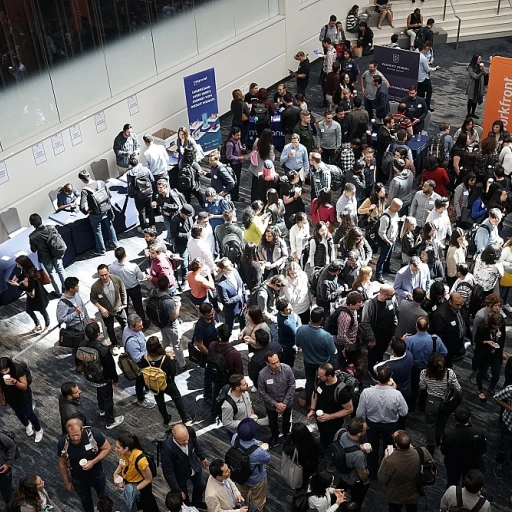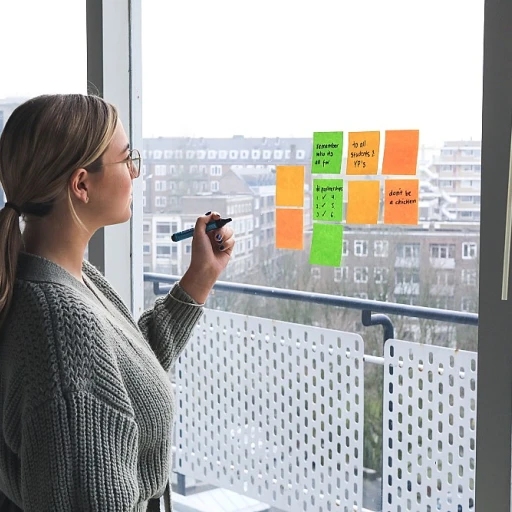
Understanding the Skills Gap
Grasping the Concept of Skills Gap
The skills gap has become a critical talking point in modern workplaces. This gap represents the divide between the skills that employers need and the skills that potential employees possess. Companies are constantly on the lookout for qualified candidates who meet their needs, yet often they find these necessary skills lacking among job seekers. Understanding this disparity is key to developing strategies that are both effective and sustainable. To address this issue, diversity, equity, and inclusion (DEI) initiatives play a vital role. A diverse workforce brings different perspectives and approaches, which can lead to improved problem-solving and innovation. Embracing DEI in the hiring process is not only about fulfilling quotas; it's about building a truly inclusive workplace where every team member feels valued and empowered. When companies foster an inclusive environment, they open themselves to a broader talent pool. This, in turn, reduces the skills gap by tapping into a range of experiences and capabilities. Crafting inclusive interview questions can help identify candidates whose diverse backgrounds can contribute to filling the skills gap. By coming up with questions that promote equity and inclusion, companies can engage candidates from various backgrounds, ensuring they select individuals with the potential to bridge this critical disconnect. Moreover, a focused understanding of leadership styles can further help in minimizing the skills gap. By identifying the ideal leadership personality, businesses can ensure that they are selecting leaders who are not only diverse but also equipped to mentor their teams effectively. For more insights, you can explore the ideal leadership personality, which can be instrumental in understanding the nuances of leadership and its impact on workforce dynamics.The Role of Diversity in Bridging the Skills Gap
The Importance of Diversity in Reducing Discrepancies in Skills
Bridging the skills gap requires a multifaceted approach, where diversity and inclusion play pivotal roles. Combining perspectives from different backgrounds can lead to innovative solutions and foster an environment where gaps in skills are addressed more effectively. Companies seeking to create this diverse workforce must understand the value in recruiting individuals from a variety of racial, cultural, and educational backgrounds.
Promoting diversity within an organization means bringing together a team with varied experiences and talents. This synthesis is key for problem-solving and enhancing the understanding of complex challenges. By addressing the need for diversity, equity, and inclusion (DEI) throughout the hiring process, companies can cultivate an inclusive workplace where every candidate feels valued and motivated to contribute their best work.
A diverse team encourages an equitable distribution of skills across the workforce, ensuring that knowledge and expertise are not monopolized but shared. This enhances team dynamics and creates opportunities for all team members to learn from one another. For example, integrating diverse voices can introduce fresh technological knowledge in areas where older practices may be outdated.
Furthermore, pairing diversity with thoughtful questioning during interviews can elicit insightful answers that reveal a candidate's potential to fill the deficiencies within a company's skills inventory. Including DEI interview questions ensures candidates are evaluated not only on their individual competencies but also on their ability to contribute to a diverse and inclusive work environment.
Creating a welcoming atmosphere where differences are celebrated and everyone’s voice is heard is not just beneficial but essential for addressing the skills gap efficiently. As organizations strive to establish an inclusive workplace, promoting diversity as a key objective can initiate significant strides in reducing disparities and enhancing overall productivity.
Crafting Inclusive Interview Questions
Developing Questions for an Inclusive Hiring Process
Creating a diverse and inclusive work environment starts with the hiring process, making it crucial to craft inclusive interview questions. By doing so, a company not only supports its inclusion goals but also helps in closing the skills gap. Here’s how employers can approach this:
- Understand Diversity and Inclusion Goals: Reflect on the company's diversity equity and inclusion (DEI) objectives to determine which qualities are most needed in candidates to foster a diverse workforce.
- Focus on Experiential Questions: Ask candidates to share examples of how they have actively contributed to a diverse inclusive team or environment. For instance, "Can you describe a situation where you promoted equity inclusion in your previous role?" This will bring out candidates' real-world experiences and commitment to DEI.
- Explore Values and Understanding: Choose questions that evaluate a candidate's understanding of diverse inclusive work settings, such as "How do you ensure inclusion in team projects?" This can highlight their dedication to fostering an inclusive workplace.
- Collaboration and Conflict Resolution: Enquiries like "Can you provide an example of resolving a conflict that involved diverse team members?" can gauge the candidate's ability to work in complex and diverse environments.
By integrating these thoughtfully crafted questions, organizations can ensure that they not only align their hiring process with their diversity inclusion values but also better assess potential employees' capabilities in contributing to a vibrant and inclusive work environment.
For more insights into how diverse experiences can reduce adverse impact in the skills gap, take a look at understanding the concept of adverse impact.
Examples of Effective Diversity Interview Questions
Examples to Foster Inclusive Hiring
Crafting diversity interview questions is an essential approach to ensuring your hiring process acknowledges and closes existing skills gaps. A well-rounded approach to interviewing not only emphasizes qualifications but also the ability of candidates to adapt and thrive within a diverse work environment. Below are some examples and considerations that can help structure inclusive and effective interview questions:- Understanding of Diversity, Equity, and Inclusion
- "Can you share an example of how you’ve incorporated diversity and inclusion into your work?"
- "What steps have you taken in the past to understand the perspectives of colleagues from different backgrounds?"
- Collaboration in a Diverse Team
- "Describe a time when you collaborated with team members from varied backgrounds. How did you ensure every voice was heard?"
- "How do you contribute to the creation and maintenance of a diverse and inclusive workplace?"
- Overcoming Challenges in a Diverse Workplace
- "Provide an example of a challenge you faced in a diverse work setting and how you addressed it."
- "What strategies do you use to support equity and inclusion in your direct reports?"
- Commitment to Personal Growth and Learning
- "Talk about a time you had to change your perspective or approach because of feedback related to diversity and inclusion."
- "How have you educated yourself on diversity, equity, and inclusion issues both personally and professionally?"
Training Interviewers on Diversity Awareness
Equipping Interviewers with Diversity Awareness
Creating an inclusive workplace starts with those leading the hiring process. It is critical to equip interviewers with the necessary understanding and skills to effectively evaluate candidates from diverse backgrounds. This involves specific training aimed at broadening their understanding of diversity, equity, and inclusion (DEI) principles. Developing a DEI-focused interview awareness helps interviewers create an equitable work environment. Here’s how training programs can be structured:- Comprehensive DEI Workshops: These workshops must cover essential topics such as unconscious biases, equitable work practices, and how to foster an inclusive workplace. This promotes better engagement with candidates from varying backgrounds.
- Role-Playing Exercises: Facilitating role-playing allows interviewers to practice and refine their skills in framing diversity-focused questions and evaluating responses. This can reveal potential gaps in the understanding of diversity and inclusion dynamics.
- Scenario-Based Learning: Providing interviewers with real-world scenarios can enhance their ability to handle diversity questions with empathy and insight. For instance, understanding how to manage discussions around personal experiences shared by candidates during interviews can enable more inclusive interactions.
- Continuous Feedback and Development: Post-training evaluations and continuous feedback loops ensure that interviewers remain aligned with DEI objectives. Engaging in discussions with peers and experienced DEI practitioners can also spur progress.


